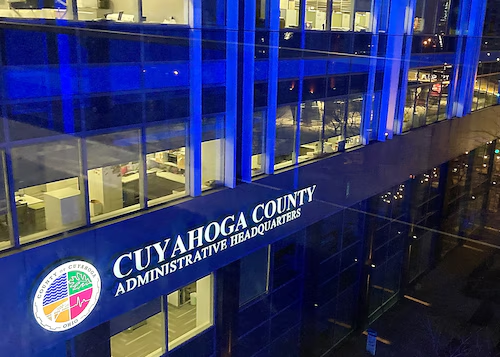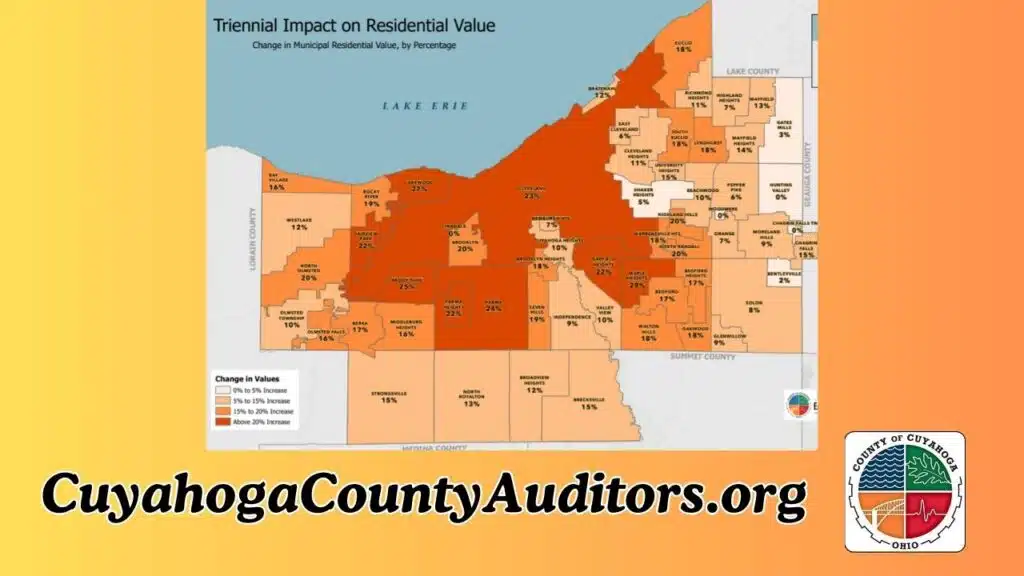The Cuyahoga County Auditor’s office works with local communities to make property assessments clear. They help people understand how property values are set and how they affect local taxes.
This article explores how these efforts increase transparency and trust, improving communication between the Auditor’s office and the community.
What is the Role of the Cuyahoga County Auditor in Property Assessments?
The Cuyahoga County Auditor is key in setting fair market values for properties. This value is used to figure out property taxes that fund important local services. The Auditor updates these values to keep taxes fair for everyone.
The Auditor’s office also works with local people and groups. They make sure property owners know how assessments work and their rights to appeal if needed.
Why is Property Assessment Transparency Important?
Transparency in property assessments is vital for trust. Without it, people might doubt the fairness of their taxes or how values are set. Here’s why it matters:
- Fairness: Knowing how assessments are done helps people trust the process and accept the results.
- Accountability: Being open ensures local governments and the Auditor’s office are responsible for accurate values.
- Informed Decision-Making: Understanding how values are set helps residents make better decisions about their properties.

How Does the Cuyahoga County Auditor Collaborate with Local Communities?
The Cuyahoga County Auditor’s office has many ways to work with local communities. They make sure property assessment is clear and easy for everyone to understand.
1. Community Workshops and Information Sessions
The Auditor’s office holds workshops and sessions in different neighborhoods. These events let property owners meet officials, ask questions, and learn about their property values.
Benefits of these workshops include:
- Education: People learn about the assessment process and what affects their property’s value.
- Personalized Assistance: Residents can get help with their specific cases, making the process easier.
- Transparency: These workshops help build trust between the Auditor’s office and the community.
2. Online Tools and Property Search Portals
The Cuyahoga County Auditor has an online tool for property data. It lets residents check their property’s value, see its history, and compare it to others.
The online portal has features like:
- Property Value Look-Up: Homeowners can check their property’s current value anytime.
- Comparable Properties: Users can see how their property compares to similar ones in their area.
- Assessment History: The tool shows how a property’s value has changed over time.
3. Collaborations with Neighborhood Associations and Local Governments
The Auditor’s office works closely with neighborhood groups and local governments. This ensures everyone gets the latest information and can share their concerns. It’s key to reaching more people and tackling specific issues in each area.
Importance of Local Partnerships:
- Localized Information: Each area has its own special features that can change property values. Working with local groups helps consider these unique factors.
- Trusted Voices: Neighborhood leaders help spread the word from the Auditor’s office to the community. They make sure the information fits the area’s needs.
- Issue Resolution: By teaming up with local governments, the Auditor’s office can tackle big issues better. This includes big developments or market drops.
4. Educational Outreach Through Schools and Civic Groups
The Cuyahoga County Auditor’s office also reaches out to schools and civic groups. They teach young people and community leaders about property assessments and taxes.
Educational Efforts Include:
- School Programs: They work with schools to teach students about how property taxes help fund public services like education.
- Civic Group Presentations: They give talks to community leaders and groups about property assessments and their role in supporting public services.
- Interactive Tools: They offer digital tools and resources to help people of all ages understand property assessments.
5. Appeal Process for Property Assessments
Ensuring property owners can challenge their assessments is key to transparency. The Cuyahoga County Auditor’s office has a clear appeal process. They explain it on their website and at community workshops.
Steps in the Appeal Process:
- File an Appeal: Property owners can appeal if they think their property is overvalued.
- Review and Investigation: The Auditor’s office will look into the appeal and might re-evaluate the property.
- Hearing: If needed, the owner can present their case at a formal hearing.
- Final Decision: After reviewing all evidence, the Auditor’s office will make a final decision on the property’s value.

Key Collaborations Between Cuyahoga County Auditor and Local Communities
| Initiative | Purpose | Impact on Residents |
|---|---|---|
| Community Workshops | Educate property owners about assessments | Increased awareness and trust |
| Online Property Search Tools | Provide easy access to property data | Transparency and convenient access to information |
| Neighborhood Partnerships | Collaborate with local associations for localized outreach | Tailored communication and issue resolution |
| Educational Outreach | Engage with schools and civic groups | Promotes long-term understanding of property taxes |
| Appeal Process Support | Provide clear instructions for challenging assessments | Empower residents to take action on their property values |
How Are Property Values Determined in Cuyahoga County?
The Auditor’s office in Cuyahoga County looks at several factors to set property values. These include:
- Market Value: The price a property would sell for in a competitive market.
- Location: Where the property is, like schools and amenities nearby, can change its value.
- Property Size and Features: The size of the lot, home square footage, and number of rooms matter.
- Condition of the Property: Well-kept homes tend to be worth more than those needing repairs.
- Comparable Sales: The prices of similar homes help set a property’s value.
How Do Property Assessments Affect Taxes?
Property assessments affect how much you pay in property taxes. The Auditor sets a property’s value, then applies the tax rate. This is how much you pay each year. The money from these taxes helps fund schools, libraries, police, and more.
Factors Influencing Property Tax Rates:
- Local Tax Levies: Levies fund schools, roads, and safety. The levies you have affect your tax bill.
- State Regulations: Ohio laws also impact tax rates. They can change how much you pay for schools and services.
- Property Value Changes: If your property value goes up or down, so will your taxes.
How to Stay Informed About Property Assessments
Knowing your property’s value and what affects it is key. The Cuyahoga County Auditor’s office has resources to help. They help you track your property’s value and tax changes.
1. Sign Up for Property Notifications
Homeowners can get updates on their property’s value and taxes. These alerts tell you about changes or upcoming reviews.
2. Attend Community Meetings
Going to meetings or workshops hosted by the Auditor is helpful. You can learn about assessments and ask questions.
3. Use Online Resources
Use the Auditor’s online tools to check your property’s value. You can also learn about local taxes and stay updated on changes.
Key Resources for Property Owners in Cuyahoga County
| Resource | Description | Benefits to Residents |
|---|---|---|
| Online Property Search Tool | Access to property values and comparable sales | Easy access to information about your property |
| Community Workshops | In-person events to learn about assessments | Opportunity to ask questions and get clarification |
| Property Notifications | Alerts for changes in property value or taxes | Stay informed and avoid surprises on tax bills |
| Neighborhood Partnerships | Collaborations with local groups for targeted outreach | Receive localized information specific to your area |
| Assessment Appeal Process | Process for challenging property valuations | Empower homeowners to ensure fair property assessments |
Conclusion
The Cuyahoga County Auditor works closely with local communities. This helps build trust and transparency in property assessments. They use workshops, online tools, and partnerships to keep residents informed.
By being open about property assessments, the Auditor’s office promotes fairness and accountability. This benefits everyone in the community. It also helps local government work better.
Property owners in Cuyahoga County can understand their property values better. They also see how their taxes support important public services. This knowledge helps them feel more connected to their community.
Keeping property assessments transparent is key for the Cuyahoga County Auditor’s office. They focus on working with the community. This way, property owners know their taxes are fair and accurate.






